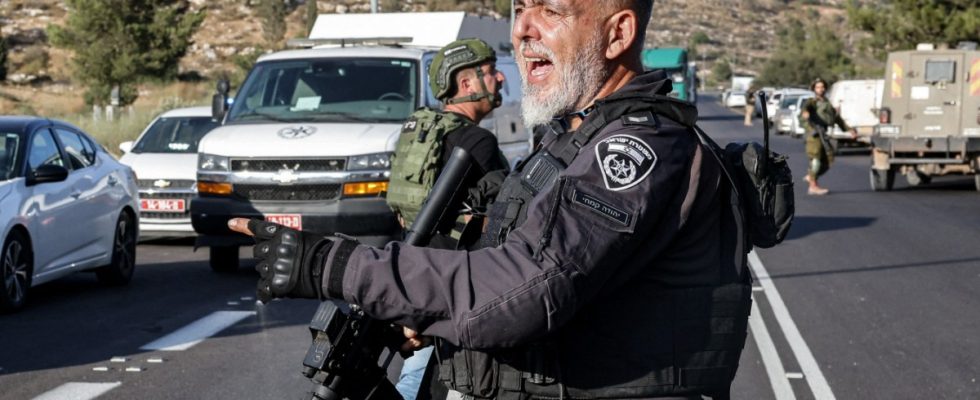Street fighting in Jenin, deadly terror in the Israeli settlement of Eli, burning houses in Palestinian villages – the West Bank has endured a week of violence reminiscent of the distant past of the second Intifada of 2000-2005. The situation hadn’t been this tense for a long time. The right-wing government in Jerusalem is now calling for a massive military operation in the northern West Bank. A violent clean-up operation is supposed to restore calm there – but there is a great danger that the situation will escalate even more.
The current drama has unfolded day by day with a chilling logic: It began on Monday with a runaway army operation in Jenin, which, along with Nablus, is believed to be the main source of the unrest. The soldiers had moved in to arrest two suspects. This resulted in hours of gun battles, in which seven Palestinians were killed and more than 90 injured. The detonation of a hidden explosive device also wounded seven Israeli soldiers. During their recovery, an Israeli attack helicopter fired rockets in the West Bank for the first time since the end of the second intifada.
The government downplays the violence
The next day, two Palestinian gunmen shot dead four Israelis at a hummus restaurant and at a gas station at the entrance to the Eli settlement, north of Ramallah. Hamas, which confessed to the crime, immediately spoke of a retaliatory action against Jenin – and thus provoked another round of revenge: That same evening and continued the following day, hundreds of settlers devastated several Palestinian towns. They set houses, cars and fields on fire. The residents complained that the army had just watched the activities. The Israeli media spoke of a “pogrom” by the settlers.
Prime Minister Benjamin Netanyahu also intervened and reminded the organized rioters that Israel is “a state governed by the rule of law”. In their own coalition camp, however, the settlers’ violence is far from being condemned by everyone. Religious Zionist MP Simcha Rothman, for example, downplayed the incidents by comparing them to protests against the government’s planned judicial reforms. After a similar riot in the Palestinian town of Huwara in the spring, his party leader Bezalel Smotrich declared that this town had to be “wiped out”. After a storm of protests, he declared it a verbal slip.
Itamar Ben-Gvir calls for ‘targeted aerial killings’
The right-wing extremist wing of the coalition is now using the situation to put pressure on Netanyahu by demanding a significantly increased deployment of the army. Smotrich calls for a “broad-scale operation to root out terrorist nests.” And even at the terrorist crime scene in Eli, Minister for National Security Itamar Ben-Gvir called for “targeted killings from the air, the destruction of houses and the death penalty for terrorists”.
His first suggestion was quickly put into practice: three Palestinians who had fired shots at an Israeli military post near Jenin were killed in their car by an armed drone on Wednesday evening. This, too, happened in the West Bank for the first time since the days of the Intifada and can be taken as further evidence that the conflicting parties are on the precipitous path leading to a massive military conflict.
To calm the minds of his coalition partners, Netanyahu also announced the accelerated construction of 1,000 new housing units in the terror-hit Eli settlement, despite protests from Washington and Europe. The settlers will be pleased, but not satisfied. The Palestinians, on the other hand, are likely to see this as a further provocation.

